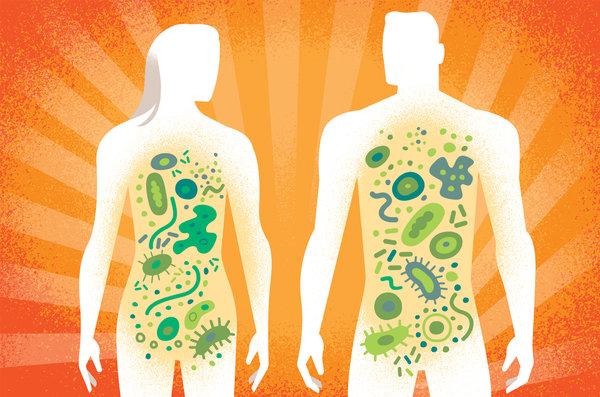The human body carries diverse communities of microorganisms, which are mainly bacterial. These are referred to as “human microbiome”.
From November 19 to 22, Pune hosted an international conference on microbiome research — a field of study that is still in its infancy in India. That could be set to change, with a proposed project that would study and map the human microbiome across the country. Dr Shekhar Mande, director-general of the Council of Scientific and Industrial Research (CSIR), is optimistic that the Rs 150-crore project will get approval soon.
What is this emerging field of research, and why is it important?
What it means
The human body carries diverse communities of microorganisms, which are mainly bacterial. These are referred to as “human microbiome”. These organisms play a key role in many aspects of host physiology, ranging from metabolism of otherwise complex indigestible carbohydrates and fats to producing essential vitamins, maintaining immune systems and acting as a first line of defense against pathogens.
Research on the human microbiome has thrown light on various aspects — how different parts of the human body are occupied by characteristic microbial communities, and how various factors contribute in shaping the composition of the microbiome, including the genetics, dietary habits, age, geographic location and ethnicity. These studies laid a strong foundation to decipher the microbiome’s implications on health and a wide range of diseases, said Dr Yogesh Shouche, senior scientist at the National Centre for Cell Science (NCCS) in Pune. Shouche was the lead organiser of the international conference and is the lead coordinator of the proposed project.
The project
Various research groups in the country are working on the human microbiome, including Shouche and colleagues. What India lacks is a national microbiome initiative similar to those in other countries. Now, a high-level committee at the Department of Biotechnology has shown a keen interest in the proposed project, Mande of CSIR told The Indian Express.
The project will include collection of saliva, stool and skin swabs of 20,000 Indians across various ethnic groups from different geographical regions. India provides for a wide range of research with more than 4,500 ethnic groups and presence of two global biodiversity hotspots (Himalayan range and Western Ghats).
India potential
Scientists at NCSS have conducted a meta-analysis on gut microbiota of healthy Indian individuals and compared it with that of individuals from other parts of the world. It shows that the Indian population harbours a distinct gut microbial community, which, scientists say, calls for an in-depth investigation of the Indian microbiome.
India has a large number of tribal populations largely unaffected by “modern” diet and lifestyle. The prevalence of lifestyle-related disorders such as obesity and diabetes has been known to be significantly lower compared to the non-tribal (urbanised) populations across the globe. Hence, scientists say, a study on the tribal population would help improve knowledge of evolution of the mutualism between gut microbiota and the host.
Source:IE
You may also like
-
New Heat-Based Approach To Cancer Treatment Can Reduce Chemotherapy Doses
-
Scientists Take A Major Step Towards Unification Of Classical & Quantum Gravity
-
India Graphene Engineering and Innovation Centre (IGEIC) Under the Vision of Viksit Bharat@2047 Launched
-
New High-Performance Gas Sensor can Monitor Low Level Nitrogen Oxides Pollution
-
Antidepressant Drug can be Repurposed for Treating Breast Cancer
